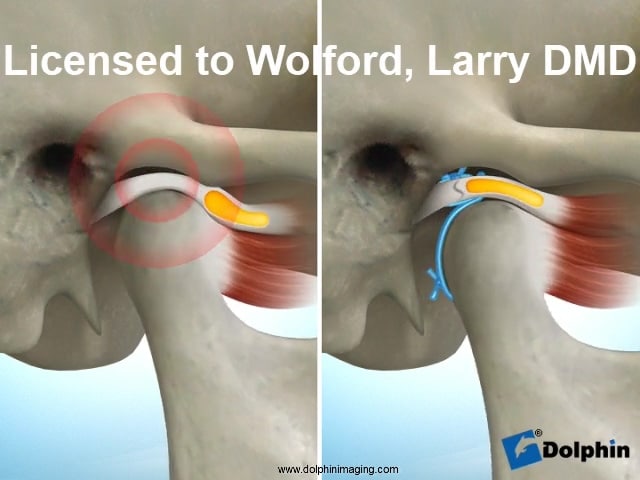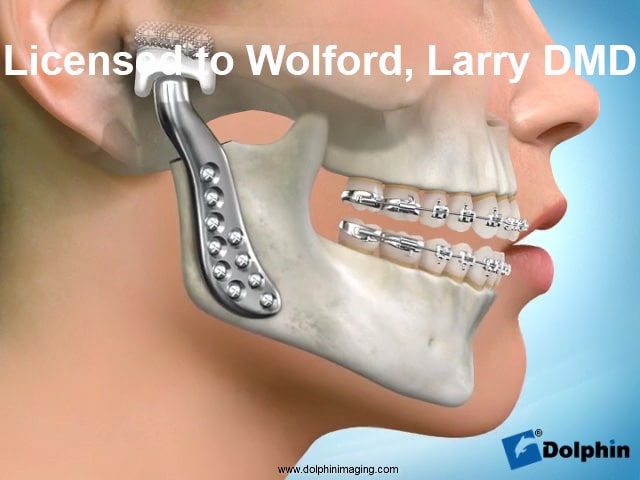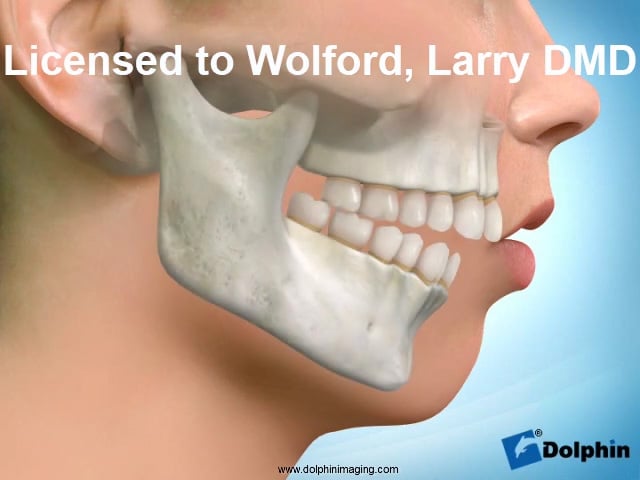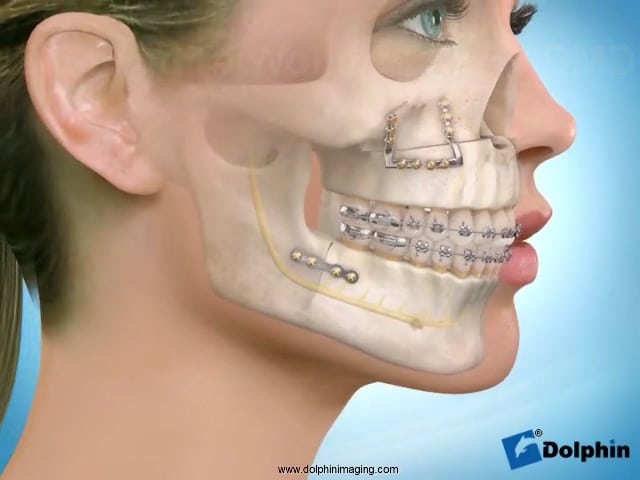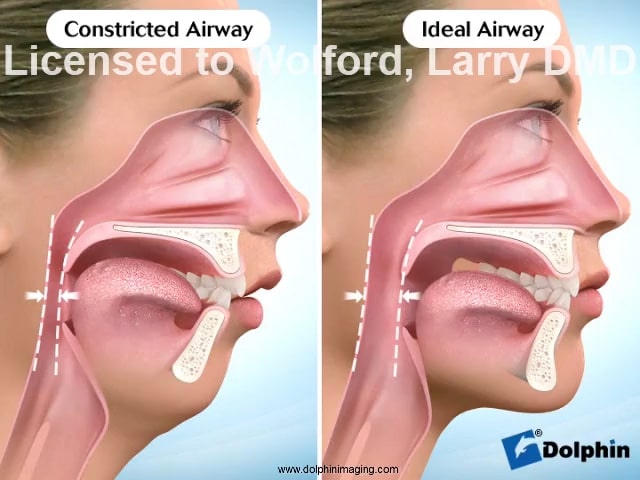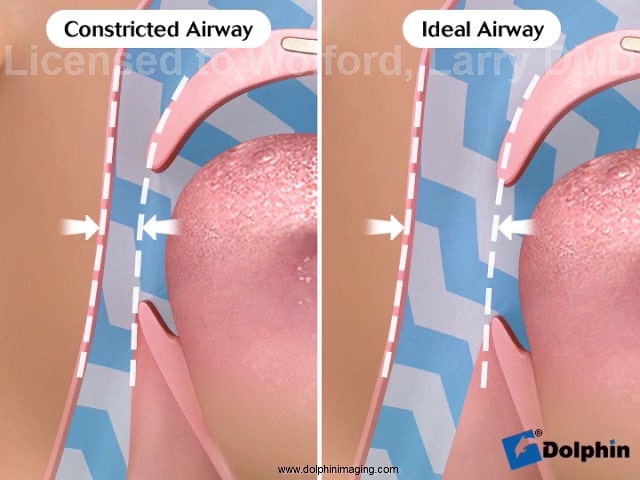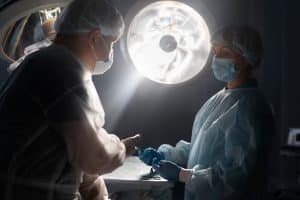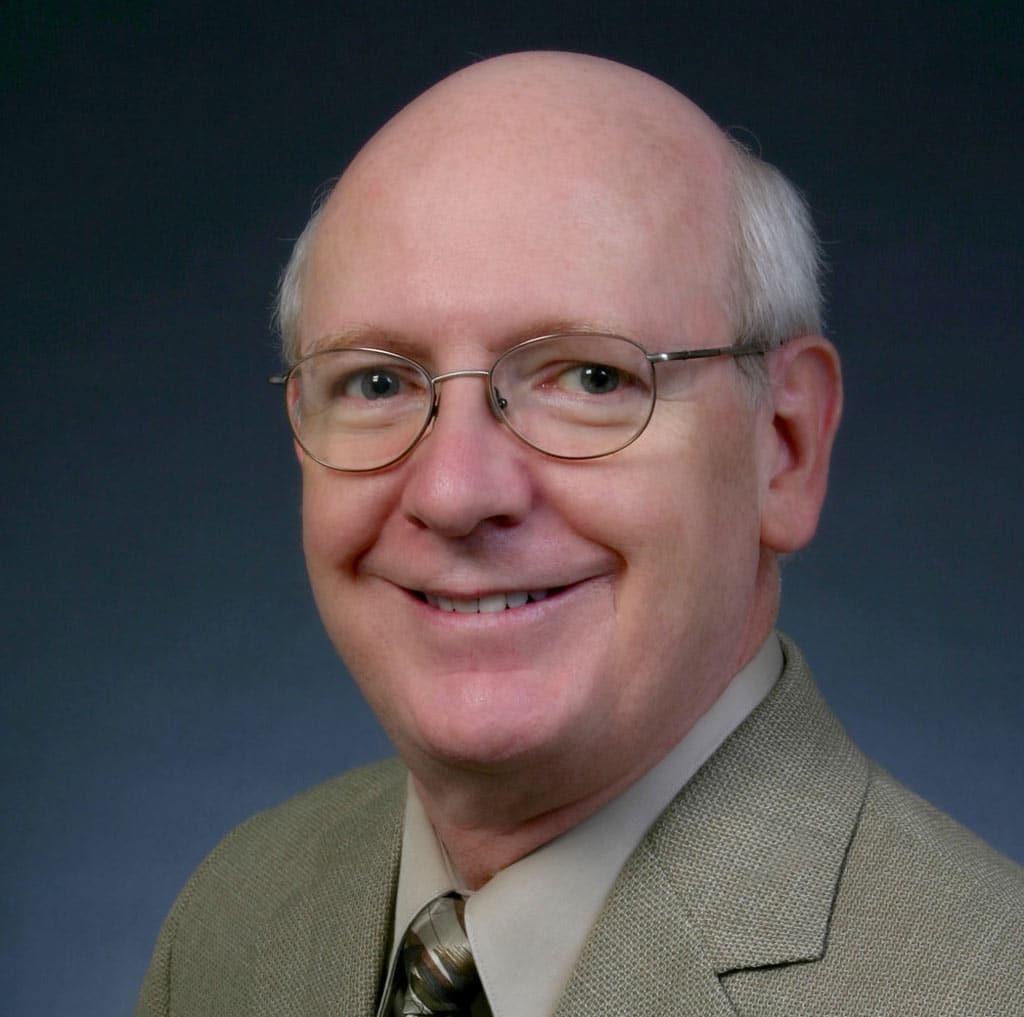Are you experiencing clicking or popping sounds in your jaw? How about difficulty opening or closing your mouth? These could be signs of Temporomandibular Disorder (TMD), a condition that affects over 5% of the population, with women being more commonly affected.
If you’re nodding along, keep reading to discover how TMJ replacement surgery might just be the solution you need to kiss those TMD symptoms goodbye!
Temporomandibular Disorder (TMD) is the general terminology used to describe the pain and/or dysfunction of the temporomandibular joint (TMJ) and its associated structures.
Over 5% of the population is affected by TMD; it is found more commonly in women. The cause of TMD may include clenching/grinding, changes in someone’s bite, trauma, joint overload, arthritis and psychological factors.
Temporomandibular Disorder (TMD) encompasses the pain and dysfunction of the temporomandibular joint (TMJ) and its related structures. Surprisingly, over 5% of the population grapples with this condition, with women bearing a higher likelihood of being affected. The causes of TMD vary widely, ranging from habits like clenching or grinding teeth to traumatic injuries that impact the jaw joint.
Changes in one’s bite alignment, excessive joint strain, arthritis, and even psychological factors can all contribute to TMD symptoms. It’s a complex interplay between physical, emotional, and environmental influences that can manifest as jaw discomfort or limited movement. Understanding these underlying causes is crucial in developing effective treatment strategies tailored to each individual’s unique situation.
Identify the Cause of TMD
The Critical Step in Treating Temporomandibular Disorders Is To Identify the Cause.
The most common causes of TMD are muscular disorders referred to as myofascial pain and TMJ dysfunction. These disorders are managed non-surgically with a variety of reversible medical treatment methods. Since some types of TMJ problems can lead to more serious conditions, early detection and treatment is very important.
Identifying the root cause of Temporomandibular Disorders (TMD) is crucial for effective treatment. Among the most common causes are muscular issues like myofascial pain and TMJ dysfunction. These conditions can often be managed without surgery using various reversible medical treatments. Early detection and intervention are key as untreated TMJ problems may progress to more severe complications.
Myofascial pain involves discomfort in the muscles responsible for jaw movement, while TMJ dysfunction affects the joint itself. Through non-surgical approaches, such as physical therapy, medications, or lifestyle modifications, many individuals find relief from TMD symptoms. By addressing these issues promptly, patients can prevent further deterioration of their jaw function and overall well-being.
Consulting with a specialist who understands these complexities is vital in developing a personalized treatment plan tailored to each patient’s unique needs.
TMD Signs & Symptoms:
- Clicking and popping of the jaw
- Difficulty or painful opening and closing of the jaw • Locking of the jaw
- Clenching and grinding when stressed
- Frequent headaches and neck pain
- Stiff, sore muscles of the jaw
- Teeth that are no longer touching or come together differently
- Aching pain around the ear
Do you find yourself experiencing clicking or popping sounds in your jaw when you open and close your mouth? Perhaps you’ve been dealing with difficulty or pain while trying to move your jaw, leading to a feeling of it being locked at times.
Stress can sometimes manifest as clenching and grinding of the teeth, causing additional strain on the temporomandibular joint (TMJ). These habits might contribute to frequent headaches and neck pain that persist despite other treatments.
The muscles around your jaw may feel stiff and sore, affecting everyday activities like eating or speaking. You might notice changes in how your teeth come together, with some no longer touching properly. This misalignment could be accompanied by aching pain around the ear area.
If any of these signs and symptoms sound familiar, it’s essential to seek professional evaluation for Temporomandibular Disorder (TMD) to explore appropriate treatment options tailored to your needs.
Get a Professional Evaluation For TMJ Replacement Surgery Today
Dr. Larry Wolford believes in non-surgical treatment, if at all possible and minimally invasive surgery only when indicated.
No single treatment can solve TMD completely and treatment takes time to become effective. Sometimes, complete TMJ replacement surgery is necessary.
- Dr. Larry Wolford specializes in all treatment modalities of TMD and will work closely with your medical and dental implant providers. Call 214-828-9115 to schedule a free telephone consultation.
Dr. Larry Wolford is dedicated to exploring non-surgical options for treating Temporomandibular Disorders (TMD) whenever feasible. Understanding that TMD requires a comprehensive approach, Dr. Wolford emphasizes the importance of time in achieving effective results.
When it comes to addressing TMD, Dr. Larry Wolford believes in utilizing minimally invasive surgical techniques only when necessary, ensuring patients receive the most appropriate care tailored to their specific needs.
With extensive experience in all treatment modalities for TMD, including non-invasive methods and surgical interventions, Dr. Wolford collaborates closely with medical and dental professionals to provide personalized care plans for each patient’s unique situation.
If you’re seeking expert guidance on managing your TMD symptoms or exploring potential treatment options, don’t hesitate to reach out and schedule a free telephone consultation with Dr. Larry Wolford at 214-828-9115 today.
Non-Surgical Treatments
Dr. Larry Wolford’s primary goal in the treatment of TMD is to alleviate pain and/or jaw dysfunction. TMD can significantly impact a patient’s quality of life, Dr. Larry Wolford will provide you with all the different options to alleviate your pain.
Dr. Larry Wolford understands the profound impact Temporomandibular Disorders (TMD) can have on a person’s daily life. With his expertise, his primary focus is to alleviate the pain and dysfunction associated with TMD. Dr. Wolford aims to provide patients with a range of non-surgical treatment options tailored to their specific needs.
By offering personalized care, Dr. Larry Wolford ensures that each patient receives comprehensive attention and guidance throughout their treatment journey. Whether it’s addressing clicking and popping jaws or managing clenching and grinding habits, he strives to improve patients’ quality of life by alleviating their symptoms effectively.
Through a collaborative approach, Dr. Wolford works closely with patients to explore various non-invasive treatments designed to target the root cause of their TMD issues. By prioritizing pain relief and jaw functionality, he empowers individuals to regain control over their oral health and well-being in a holistic manner.
Surgical Treatment
Surgical management of the TMJ disorder is complex and should be performed by an Oral and Maxillofacial Surgeon with a medical and dental background.
The advent of arthroscopy, a minimally invasive surgical technique, has significantly improved the results of temporomandibular joint surgery. The goal of surgical treatment is to alleviate pain and/or jaw dysfunction that could not be alleviated with non-surgical, non-invasive treatments.
When it comes to treating Temporomandibular Disorders, surgical options should be considered when non-surgical methods are not effective. These surgeries are intricate and require the expertise of an Oral and Maxillofacial Surgeon with a background in both medicine and dentistry.
One significant advancement in TMJ surgery is arthroscopy, a minimally invasive technique that has shown great success in improving outcomes for patients with TMJ disorders. This approach allows for better precision and faster recovery times compared to traditional open surgeries.
The primary objective of surgical treatment for TMJ disorders is to provide relief from pain and dysfunction that persists despite other treatments. By targeting the root cause of the issue through surgery, patients can experience long-term improvements in their jaw function and overall quality of life.
Surgical Treatments:
- Arthroscopy (minimally invasive)
- Arthroplasty (disc repositioning)
- TMJ total joint replacement surgery
When it comes to treating Temporomandibular Disorder (TMD), surgical options may be necessary for some patients. One of the minimally invasive surgical techniques used is arthroscopy, allowing for precise examination and treatment of the TMJ. This method has shown success rates exceeding 92% in providing pain relief.
Arthroplasty, on the other hand, involves open joint surgery aimed at repositioning or repairing the disc within the joint. This procedure becomes essential when conservative and minimally invasive treatments have not yielded favorable results. By addressing issues such as painful clicking joints or closed locking, arthroplasty can significantly improve jaw function.
In severe cases where joint structures are severely damaged, TMJ total joint replacement surgery may be considered. This complex procedure aims to alleviate pain, restore mandibular function, and prevent further complications related to advanced joint disease.
Arthroscopy
Arthroscopic surgery was first used in the Orthopedic Surgery field to examine knees and shoulder joints and has since been adopted in Oral and Maxillofacial surgery to treat TMD.
Dr. Larry Wolford is highly trained and skilled in arthroscopic surgery and performs these surgeries at Baylor surgical center. Studies have confirmed >92% success rate when evaluating pain relief.
- The indications for arthroscopic intervention include patients who have pain and jaw dysfunction and are not responsive to nonsurgical treatment and management.
Arthroscopic surgery, a minimally invasive technique initially used in Orthopedic Surgery for knees and shoulders, has seamlessly transitioned into the realm of Oral and Maxillofacial surgery to address Temporomandibular Disorders. Dr. Larry Wolford’s expertise shines through as he conducts arthroscopic surgeries at Baylor surgical center with precision and skill.
Studies have shown an impressive success rate of over 92% in providing pain relief for patients undergoing arthroscopic intervention. This innovative approach is specifically tailored for individuals experiencing persistent jaw dysfunction and pain despite non-surgical treatments.
The meticulous indications for arthroscopic procedures encompass patients who have not found relief through conventional management methods. By delving into the intricacies of each case, Dr. Larry Wolford can determine whether arthroscopy is the optimal path towards alleviating discomfort and restoring functionality to the jaw joint.
Arthroscopic Surgery Advantages:
- No skin incision or scar
- Reduced incidence of facial nerve injury
- Diagnostic and therapeutic capabilities
Arthroscopic surgery offers various advantages when compared to traditional open joint procedures. One significant benefit is the absence of a skin incision or scar, making it a more aesthetically appealing option for patients. This minimally invasive technique also boasts a reduced likelihood of facial nerve injury, providing added peace of mind during the surgical process.
Moreover, arthroscopy allows for both diagnostic and therapeutic capabilities in treating temporomandibular disorders. By utilizing specialized instruments and advanced imaging technology, surgeons can accurately assess and address issues within the temporomandibular joint with precision.
These advantages make arthroscopic surgery a preferred choice for many individuals seeking effective treatment for TMJ dysfunction.
Arthroplasty (disc repositioning)
An arthroplasty is an open joint procedure that is reserved for individuals who have not responded favorably to other measures.
Open surgical exploration of the TMJ follows after conservative (non-surgical) techniques and minimally invasive procedures (arthroscopy) have failed. The goal of an arthroplasty is to repair, reposition or replace the disc (cartilage) of the joint. Often times a damaged or displaced disc leads to clicking/popping and significant pain in the joint. The position and condition of the disc is identified prior to surgery with an MRI.
- Disc repositioning is a common surgical procedure performed to correct anterior disc displacement that has not responded to non-surgical treatment and results in painful clicking joints or closed locking.
The displaced disc is identified during surgery and repositioned to it correct anatomical position. Disc repositioning has shown to improve jaw function and has successful results >90% of the time.
Arthroplasty, specifically disc repositioning, is a surgical intervention typically considered when other treatment options for TMJ disorders have not yielded positive outcomes. It involves open joint surgery to address issues like damaged or displaced discs within the temporomandibular joint.
For individuals experiencing persistent clicking, popping, and pain in the jaw despite prior non-surgical approaches such as arthroscopy, disc repositioning can be a viable solution. By identifying the position and condition of the affected disc through MRI scans pre-operatively, surgeons aim to restore its proper alignment during the procedure.
Successful cases of disc repositioning have shown significant improvements in jaw function post-surgery, with results surpassing a success rate of over 90%. This corrective measure targets anterior disc displacement that may lead to discomfort and restricted movement in the jaw joint.
Ideally, all surgical efforts should be made to retain the disc but this is no always possible.
A discectomy, removal of the disc, is done if the disc is determined to be unsalvageable due to perforation, calcification and/or deformation. If the disc is removed, Dr. Larry Wolford will place a temporalis muscle graft in its place to provide cushion/support to the joint. This procedure has also show successful results >85-90% of the time.
- These procedures are done under general anesthesia and patients usually go home the same day. Dr. Larry Wolford specializes in TMJ surgery has performed hundreds of these surgeries. Call us today for a consultation at 214-828-9115.
When it comes to treating Temporomandibular Disorders, preserving the disc within the joint is always the primary goal. However, in cases where preservation is not feasible due to issues like perforation or calcification, a discectomy may be necessary. This procedure involves removing the damaged disc and replacing it with a temporalis muscle graft to provide support to the joint.
Dr. Larry Wolford specializes in performing these surgeries under general anesthesia, allowing patients to return home on the same day of their procedure. With a success rate ranging from 85-90%, this method has shown promising results in improving jaw function and alleviating pain for those suffering from TMJ disorders.
If you’re experiencing persistent TMJ symptoms that require surgical intervention, don’t hesitate to reach out for a consultation at 214-828-9115. Dr. Larry Wolford’s expertise in TMJ surgery can help you find relief and regain normal function in your jaw joint.
TMJ Total Joint Replacement Surgery
In some severe cases, pathologic conditions of the joint results in destruction of the joint structures and in loss of vertical dimension of the condyle leading to malocclusion, limited opening and severe pain. Like any other joint in the body, the TMJ is affected by any and all of the end-stage joint disease.
The disease processes may result from developmental disorders, trauma, arthritic diseases, failures from previous surgeries, bony/fibrous ankylosis or neoplasia. The goal of any reconstructive joint surgery includes reduction of further pain and disability; improvement of mandibular form and function; prevention of further morbidity.
When severe pathologic conditions affect the temporomandibular joint (TMJ), it can lead to the destruction of joint structures, resulting in malocclusion, limited jaw movement, and intense pain. Just like any other joint in the body, TMJ is susceptible to various end-stage diseases stemming from developmental issues, trauma, arthritis, failed surgeries, ankylosis or neoplasia.
The primary aim of reconstructive joint surgery is to alleviate existing pain and disability while enhancing mandibular form and function to prevent further complications. By addressing these underlying issues through total joint replacement surgery, patients can experience relief from debilitating symptoms and achieve improved quality of life.
- Knee and hip replacements are common surgeries performed by our Orthopedic Surgery colleagues and TMJ replacements have become more common in the Oral & Maxillofacial Surgery medical practice. These surgeries are complex procedures performed by only a few surgeons in the country.
Contact a TMJ Surgeon / TMD Surgeon
Dr. Larry Wolford is one of the few surgeons with extensive experience with these surgeries, being involved in hundreds of TMJ total joint replacements.
- In fact, Dr. Larry Wolford has successfully completed more TMJ replacement surgeries than any other surgeon. His experience is unparalleled. He has also completed more TMJ replacement revision surgeries than any other living surgeon.
When it comes to joint replacements, knee and hip surgeries are quite common procedures performed by Orthopedic Surgery specialists. However, TMJ replacements have been gaining more traction within the Oral & Maxillofacial Surgery field.
Undoubtedly complex, these surgeries require a high level of expertise and precision. Dr. Larry Wolford stands out as one of the leading surgeons in this specialized area, having successfully completed hundreds of TMJ total joint replacement surgeries.
With unparalleled experience in this domain, Dr. Larry Wolford has not only performed more TMJ replacement surgeries than any other surgeon but has also excelled in TMJ replacement revision surgeries—a testament to his exceptional skill and dedication to improving patients’ quality of life through advanced surgical interventions.
Custom Total Joint Replacement
Using the most up to date technology, Dr. Larry Wolford will have joints fabricated specific to each patient’s anatomy using specialized CT scans, facial scans and intraoral scans. Afterwards, Dr. Larry Wolford will have a virtual surgical meeting with engineers from the company fabricating the joints.

The Surgical Procedure and Medical Insurance Coverage
The surgeries take place in a hospital setting and most patients can expect a 1 to 2 day stay the hospital. The surgery takes place through 2 small incisions located along the tragus of the ear and in a crease in the neck to hide the scars. Physical therapy for 3-4 weeks post-operatively may be necessary along with at home exercises.
Dr. Larry Wolford has privileges at Baylor Dallas Hospital on the prestigious 16th floor where accommodations are luxurious and amenities unparalleled in hospitals including delivery food available from Dallas best restaurants for family members.
Dr. Larry Wolford utilizes cutting-edge technology to create custom total joint replacements tailored to each patient’s unique anatomy. By utilizing specialized CT scans, facial scans, and intraoral scans, Dr. Wolford ensures a precise fit for optimal results. Following this detailed process, virtual surgical meetings with engineers are conducted to fabricate the joints accurately.
Surgical procedures for TMJ replacement surgeries take place in a hospital setting, typically requiring a 1 to 2-day stay post-operation. The surgery involves two small incisions strategically placed along the tragus of the ear and in a neck crease to minimize scarring. Post-operatively, patients may undergo physical therapy for 3-4 weeks and follow at-home exercises prescribed by Dr. Wolford.
Dr. Larry Wolford operates at Baylor Dallas Hospital on the prestigious 16th floor where patients can enjoy luxurious accommodations and unmatched amenities during their recovery period—providing comfort and convenience including food delivery from Dallas’s top restaurants for family members staying nearby.
The decision to move forward with TMJ total joint replacement is a very serious one. Dr. Larry Wolford was trained by some of the most well respected surgeons in the world. As a licensed physician and a licensed dentist, Dr. Larry Wolford has a thorough understanding of what it takes to achieve an optimal facial aesthetic and dental implants result.
When it comes to considering TMJ total joint replacement surgery, the decision is significant. Dr. Larry Wolford’s expertise stems from training under globally renowned surgeons, ensuring top-tier care for patients seeking relief from TMJ disorders.
As a dual-licensed physician and dentist, Dr. Wolford brings a unique perspective to the field of oral and maxillofacial surgery. His comprehensive understanding of facial aesthetics and dental implants enables him to approach each patient’s case with precision and tailored solutions.
Patients can trust in Dr. Wolford’s wealth of experience and knowledge when navigating the complexities of TMJ total joint replacement surgery. By choosing a specialized surgeon like Dr. Larry Wolford, individuals can rest assured that they are in capable hands throughout their treatment journey towards improved jaw function and reduced pain levels.
Please call our TMJ replacement surgery office in Dallas at Baylor for a free telephone consultation: 214-828-9115
If you are experiencing symptoms of TMD, seeking treatment is crucial for your overall well-being. Dr. Larry Wolford and his team specialize in providing comprehensive care for Temporomandibular Disorders, offering both non-surgical and surgical treatments tailored to each patient’s needs.
For those considering TMJ total joint replacement surgery, it’s essential to consult with a highly experienced surgeon like Dr. Larry Wolford, who has an unparalleled track record in performing these complex procedures successfully.
To take the first step towards addressing your TMD and exploring potential treatment options, don’t hesitate to reach out for a free telephone consultation at our TMJ replacement surgery office in Dallas at Baylor: 214-828-9115. Your journey to relief and improved quality of life starts with a simple call.
Featured TMJ Videos
